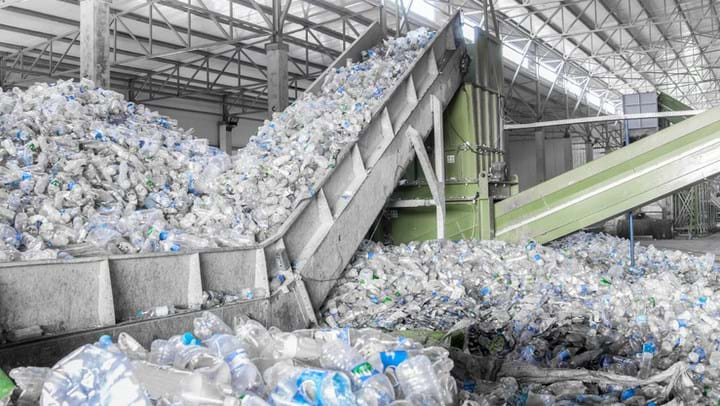LyondellBasell sets ambitious plastics sustainability target

LYONDELLBASELL has released its 2020 Sustainability Report in which it sets the target of producing and marketing 2m t/y of recycled and renewable-based polymer by 2030, one of the most ambitious goals of the industry, the company claims.
The report showcases LyondellBasell’s strategy and ambitions for the next decade, focussing on three areas, including plastic waste and climate change, with key elements involving action on several fronts.
The company’s 2030 plastics ambition is in addition to other efforts directed towards combatting the issue of plastic waste. LyondellBasell also aims to increase its investment in plastics recovery and recycling and accelerate solutions to end plastic waste, as well as to demonstrate successful plastic waste management in multiple cities and divert millions of tons of plastic waste through Alliance to End Plastic Waste (AEPW).
LyondellBasell is a founding member of AEPW, which was formed in January 2019 to help solve the issue of 8m t/y of plastic waste entering the ocean. The company’s CEO, Bob Patel, is the Vice Chair of AEPW’s Board.
Looking further into the future, LyondellBasell will join American Chemistry Council (ACC) and Plastics Europe industry peers to help ensure that 100% of plastics packaging is reused, recycled, or recovered by 2040. ACC represents a diverse set of companies engaged in the business of chemistry that aim to solve national and global challenges. Plastics Europe is a pan-European association and represents manufacturers active in the European plastics industry.
Another of LyondellBasell’s 2030 ambitions is to reduce its CO2 emissions by 15%/t of product produced relative to 2015 levels. In 2015, LyondellBasell’s direct emissions from its operated sites and indirect emissions from external electricity and steam suppliers amounted to 22.8m t/y, emitting 0.57 t of CO2 per t of product.
LyondellBasell says it intends to reduce emissions by using fossil fuels more efficiently and increasing use of feedstocks from renewable sources and from plastic waste, increasing use of renewable energy, and growing its portfolio of low carbon products.
In other, ongoing efforts aimed at achieving sustainability, LyondellBasell is developing advanced recycling with its MoReTec technology, which aims to return post-consumer plastic waste to its molecular form for use a feedstock. In September, the company started operating its pilot plant for the pyrolysis process at a site in Italy.
Working with Neste, LyondellBasell is offering a new range of renewable polymers achieved through claimed industry-first parallel production of bio-based polypropylene and bio-based polyethylene.
LyondellBasell has also expanded its mechanical recycling product grades through its joint-venture Quality Circular Polymer (QCP), improved the design of plastics to increase recyclability, and worked with brand owners to increase product recyclability.
Jim Seward, Senior Vice President of Research and Development, Technology and Sustainability at LyondellBasell, said: “LyondellBasell has been on a multi-year journey to advance the circular economy, and we have made strides in mechanical and advanced recycling, as well as producing renewable-based products.
“Our goals underscore what we see possible in the next decade, and our sustainability ambitions require us to adapt our business models.”
The report also included focus on how to achieve a thriving society, including the company's commitment to diversity and equity in the workplace. LyondellBassell aims to advance diversity, inclusion, and equity in the workplace by accelerating initiatives, such as building diversity and inclusion (D&I) into its talent programmes, implementing a D&I officer position, and involving a cross-section of leaders to serve as the D&I Council.
Recent Editions
Catch up on the latest news, views and jobs from The Chemical Engineer. Below are the four latest issues. View a wider selection of the archive from within the Magazine section of this site.




